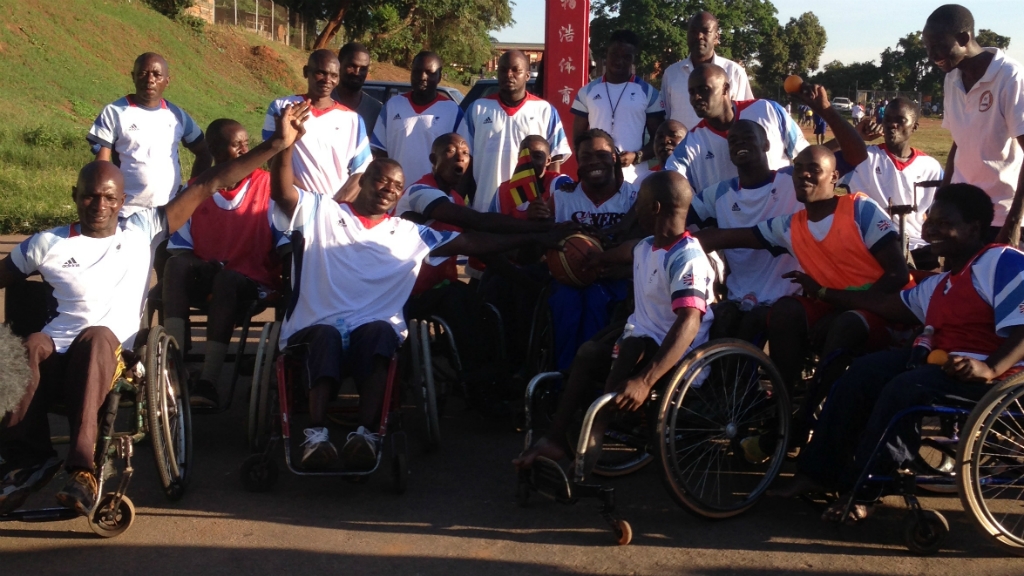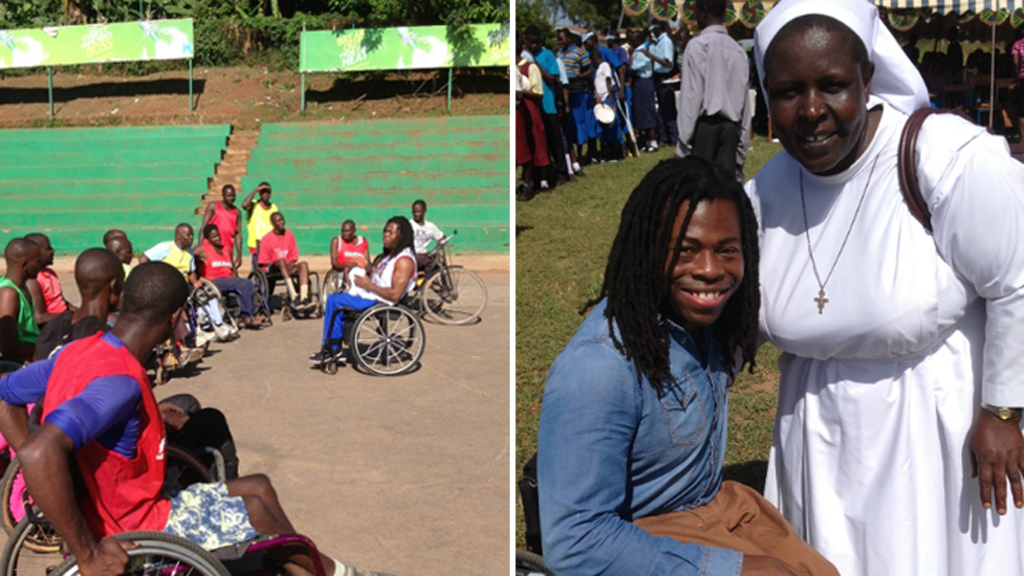How aid is changing disabled people’s lives in Uganda
After seeing the difference aid makes to the lives of disabled people in Uganda, Channel 4’s Ade Adepitan is lobbying for disability rights to be included in the UN’s millennium development goals.

Back in August I met with the minister for international development, Lynne Featherstone, writes Ade Adepitan. She told me about the UN’s millennium development goals and how they were changing the world. They targeted many of the world’s major issues, and the top line was “Leave nobody behind”.
Surprisingly, the goals didn’t include anything on disability. The MDGs are due for reassessment in 2015, and Lynne’s aim is to lobby the UN to add disability rights to the goals when they’re re-launched. She asked me to help her with the task.
Even though I was apprehensive, I felt this was a really important thing to do. It’s estimated that around 70 million children in Africa are living with disabilities. 90 per cent of them do not regularly attend schools and they are also more likely to experience violence. It’s easy to see why my parents left their friends and family in Nigeria and believed they had to bring me to the UK so I could have a better life.
Long distances
Two months after our meeting I flew to Uganda with Lynne and her team. Uganda has become one of the leading lights in Africa when it comes to disability rights issues. We went over to see how British aid and other projects were supporting disabled people.
After two eight-hour flights, we landed at Entebbe airport, an hour south of the capital Kampala. Once our paperwork was sorted, we flew for another hour towards the east of Uganda, to a town called Soroti. From Soroti we drove 35km to Wera primary school. It has 901 pupils, 24 of them with disabilities.
One parent carried his blind daughter 2km to school every day because he wanted to give her a better life when they were older.
Despite the school’s size, there were only 14 teachers, who struggled to cope with the huge class sizes. We talked to the teachers and children about the challenges faced by the disabled pupils.
A common problem was travelling long distances to school: kids with weak lower limbs arrived to school physically exhausted. Add to this the school not being able to give them lunch and you begin to realise why 90 per cent of disabled children in Africa do not get regular schooling.
One parent carried his daughter Dorothy, who was blind and unable to walk, 2km to school every day. He said he did it because he wanted to give his children a better life when they were older.

Mental strength
During our tour we were shown the school’s only accessible toilet, built by UK-based charity Water Aid. It was basic but functional and, importantly, it had a ramp, and a door for privacy. Before this, disabled kids in the school had to crawl on the floor in the main toilets while being ridiculed by some of the able-bodied kids.
School in the UK can be hard, but I can’t imagine what it’s like to feel so degraded every time you need to go to the bathroom. I admired the mental strength of these children and their parents. They were prepared to go through this humiliation to get an education. Fortunately, thanks to the new toilet, at least part of their nightmare was over.
The next day we left the hotel at 7.45am and headed to the Kaberamaido district, a 45-minute drive from Soroti. The aim was to get there early so we could meet some of the beneficiaries of a Ugandan government pilot scheme supported by DfID. The scheme provides a small amount of cash to vulnerable households, families with elderly members, and people with disabilities.
Life-changing differences
As it was explained to me, I could already hear the UK sceptics saying that this would create a culture of dependency, it would create scroungers. I wish they could have met some of the elderly Ugandans who, if eligible, received the equivalent of £5.
They used it to employ people to help with growing crops for food. There was a teenager who had had his leg amputated after an accident. He used the money to buy a prosthetic leg. There was a disabled lady who used the money to set up her clothes-making business. This money was being used to make life-changing differences in the lives of the most vulnerable in Uganda.
There was a disabled lady who used her aid money to set up her clothes-making business.
I spent three incredibly thought-provoking days in Uganda, and I’m very grateful to Lynne Featherstone for inviting me on the trip. It’s made me realise how much important work needs to be done when it comes to disability rights.
I’ve been able to turn my dreams into reality. I can’t imagine living in place where you have no chance of succeeding because you’re disabled. Unfortunately, this is the reality for millions of people. I hope that by including disability rights in the new set of UN millennium goals, we can begin to create a level playing field for people with disabilities all over the world.
-
Latest news
-
Laughing Boy: New play tells the tragic tale of Connor Sparrowhawk5m

-
Sewage warning system allows some of worst test results to be left off rating system, analysis shows3m

-
Post Office inquiry: Former CEO didn’t like word “bugs” to refer to faulty IT system4m

-
Israeli soldier speaks out on war in Gaza12m

-
PM’s defence spending boost should be ‘celebrated’, says former Armed Forces Minister4m

-




